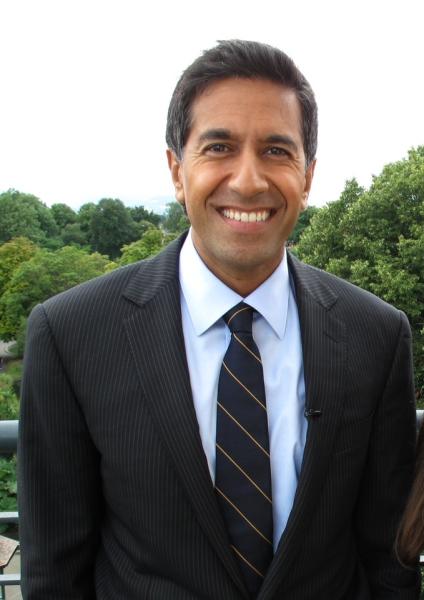When I watched the questioning by CNN’s Dr. Sanjay Gupta of White House physician Rear Adm. Ronny Jackson during the marathon press conference over the results of President Trump’s first periodic medical exam in office, all that came to mind was the puffing of peacock feathers.
I can’t begin to know what is in Dr. Gupta’s heart or head, so I would never proclaim he is an arrogant person. But, his tone and line of questioning came across so and my lasting impression was an intent to undermine and engage in a game of semantics.
It’s funny because I started my career in medicine thinking I wanted to be a neurosurgeon. In medical school, I did research in deep brain stimulation in those with Parkinson’s and Essential Tremor while heavily focusing my electives in the field. I inevitably matched in it and started a neurosurgical residency before ultimately switching fields, so I have assisted in cases that ran the gamut from aneurysm clipping to brain tumors and spinal fusions.
At the time, I was told I was the only female in the northeast applying. Let’s just say it wasn’t a particularly positive experience on many levels - the least of which was being mocked and ridiculed by senior residents at one Ivy League institution for carrying a stethoscope. But, that’s a whole other article and lifetime.
You see, the extent of their examination in the neurosurgical intensive care units typically involved checking pupils to assess for increased intracranial pressure and acute changes, checking on wounds and ensuring a patient could follow commands like wiggle their toes and be able to move all four extremities. Any subtle changes along these fronts warranted urgent imaging studies and potential return to the operating room.
Their targeted, focused exam was essential to performing their invaluable job which, undoubtedly, saved and prolonged lives – often with more preserved neurological functioning. In my opinion, surgeries of the brain, spine and peripheral nerve are among the most elegant.
But, with all the glory traditionally bestowed upon them only to be reinforced by high reimbursements, there is a reason medical personnel – not the surgical sub-specialists - perform pre-operative clearances when possible, become involved with critical or routine care to allow a patient to withstand surgery and are typically the expert diagnosticians that seek out their expertise in the first place.
Put simply, a perfect and successful brain surgery is meaningless if the heart is overlooked.
You will notice that talk show host Dr. Mehmet Oz routinely has an internist or primary care physician on his show to get into greater depth on topics. Why? Because though a cardiothoracic surgeon has a vast and extensive fund of knowledge, the further out someone advances in their subspecialty training and practice the further removed they are from managing the overall patient, every organ system and an extensive litany of conditions. Their view and context narrows.
One can simultaneously appreciate the value of a brain surgeon without undermining the added value of the team quarterback, like Dr. Ronny Jackson.
Let’s also not forget there are reasons armchair diagnosing is in no one’s best interest and other basic tenets and ethical standards of the profession are in effect. This does not invalidate the usefulness or need to always hold to task medical professionals, albeit those in the community or those in the White House.
Posing questions to Dr. Jackson is more than fair game. Insisting on clarifications and elaboration of findings or challenging thought processes are essential to transparency and public understanding.
But, when it comes to espousing realities of a particular patient’s actual health, who do you think has more insight?
The career practicing physician who sees the patient repeatedly throughout the day for a year, has personally examined the individual on more than one occasion than the protracted four-plus hour periodic physical, has spoken in consultation with top tier specialists who have reviewed all imaging and histories, had access to a complete medical record, testing and study results – oh, and who is Board-certified in Emergency Medicine, has the endorsement of staffers from bipartisan administrations, consistently led multiple medical teams including but not limited to being physician in charge of resuscitative medicine for a forward deployed Surgical Shock Trauma Platoon in Taqaddum, Iraq. Or, the accomplished spine surgeon who has never treated the patient or been privy to the aforementioned.
Your call.




